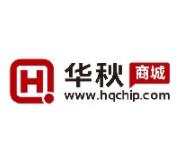| Number of series cells | 1, 2, 3, 4 |
| Charge current (Max) (A) | 5 |
| Operating Vin (Max) (V) | 24 |
| Cell chemistry | Li-Ion/Li-Polymer, Lithium Phosphate/LiFePO4 |
| Battery charge voltage (Min) (V) | 3 |
| Battery charge voltage (Max) (V) | 18.8 |
| Absolute Vin (safety rating) (Max) ((V)) | 30 |
| Control interface | I2C |
| Features | BAT temp thermistor monitoring (JEITA profile), BAT temp thermistor monitoring (hot/cold profile), IC thermal regulation, ICO (Input Current Optimization), IINDPM (Input current limit), Input OVP, Integrated ADC, Integrated LDO, Power Path, Solar input/MPPT, USB C/PD compatible, USB D+/D-/BC1.2 integrated, USB OTG integrated, VINDPM (Input voltage threshold to maximize adaptor power) |
| Operating Vin (Min) (V) | 3.6 |
| Rating | Catalog |
- High power density, high integration buck-boost charger for 1-4 cell batteries supporting any USB PD 3.0 profile
- Integrates four switching MOSFETs, BATFET
- Integrates input and charging current sensing
- Highly efficient
- 750-kHz or 1.5-MHz switching frequencies
- 5-A charging current with 10-mA resolution
- 96.5% efficient: 16-V battery at 3A from 20V
- Supports a wide range of input sources
- Autonomously sampled VOC maximum power point tracking (MPPT) for charging from a photovoltaic panel
- 3.6-V to 24-V wide input operating voltage range with 30-V absolute maximum rating
- Detects USB BC1.2, HVDCP and non-standard adapters
- Dual-input power mux controller (optional)
- Narrow voltage DC (NVDC) power path
- Backup Mode with Ultra-fast switchover to adjustable voltage
- Powers USB port from battery (USB OTG)
- 2.8-V to 22-V OTG output voltage with 10-mV resolution to support USB-PD PPS
- OTG output current regulation up to 3.32 A with 40-mA resolution
- Flexible autonomous and I2C mode for optimal system performance
- Integrated 16-bit ADC for voltage, current, and temperature monitoring
- Low battery quiescent current
- 17 μA for battery only operation
- 500 nA in Charger Shutdown Mode
- High accuracy
- -0.25% to +0.65% charge voltage regulation for 2S batteries
- ±5% charge current regulation
- ±5% input current regulation
- Safety
- Thermal regulation and thermal shutdown
- Input/battery OVP and OCP
- Converter MOSFETs OCP
- Charging safety timer
- Package
- 29-Pin 4 mm × 4 mm QFN
The BQ25798 is a fully integrated switch-mode buck-boost charger for 1-4 cell Li-ion batteries and Li-polymer batteries. The integration includes 4 switching MOSFETs, input and charging current sensing circuits, the battery FET and all the loop compensation of the buck-boost converter. It uses NVDC power path management, regulating the system not dropping below a configurable minimum system voltage. When system power exceeds the input source rating, battery supplement mode supports the system without overloading the input source. BQ25798It also maximizes power from photovoltaic panels using its built-in VOC scaling MPPT algorithm.BQ25798 supports ultra-fast switchover from the adapter to a converted battery voltage in Backup Mode.
The charger supports the narrow VDC power path management, in which the system is regulated at a voltage slightly higher than the battery voltage without being allowed to drop below the minimum system voltage. The minimum system voltage allows the system to operate even when the battery is completely discharged or removed. When system power exceeds the input source rating, battery supplement mode supports the system power requirement without overloading the input source.
The device charges a battery from a wide range of the input sources including legacy USB adapter to high voltage USB PD adapter and traditional barrel adapter. The charger automatically sets converter to be buck, boost or buck-boost configurations based on input voltage and battery voltage without the host control. The dual input source selector manages the power flowing from two different input sources. The inputs selection is controlled by the host through I2C with default source #1 (VAC1) as the primary input and the source #2 (VAC2) as the secondary input.
To support fast charging using adjustable high voltage adapter, the device provides D+/D- handshake. The device is compliant with USB 2.0 and USB 3.0 power delivery specification with input current and voltage regulation. In addition, the Input Current Optimizer (ICO) allows the detection of maximum power point of an unknown input source. The BQ25798 also provides a Maximum Power Point Tracking (MPPT) algorithm to optimize the power drawn when connected to a solar cell.
Besides the I2C host controlled charging mode, this charger also supports autonomous charging mode. After power up, the charging is enabled with default register settings. The device can complete a charging cycle without any software engagements. It detects battery voltage and charges the battery in different phases: trickle charging, pre-charging, constant current (CC) charging and constant voltage (CV) charging. At the end of the charging cycle, the charger automatically terminates when the charge current is below a pre-set limit (termination current) in the constant voltage phase. When the full battery falls below the recharge threshold, the charger will automatically start another charging cycle.
In the absence of input sources, this device supports USB On-the-Go (OTG) function, discharging battery to generate an adjustable 2.8-V to 22-V voltage on VBUS with 10-mV step size, which is compliant to the USB PD 3.0 specification defined programmable power supply (PPS) feature. The BQ25798 also provides backup mode to supply a system load at PMID using the adjustable OTG voltage when the adapter is removed.
The charger provides various safety features for battery charging and system operations, including battery temperature negative thermistor monitoring, trickle charge, pre-charge and fast charge timers and over-voltage/overcurrent protections on battery and input. The thermal regulation reduces charge current when the junction temperature exceeds a programmable threshold. The STAT output of the device reports the charging status and any fault conditions. The PG output indicates if a good power source is present. The INT pin immediately notifies host when fault occurs.
It is available in a 29-pin 4mm × 4mm QFN package.








